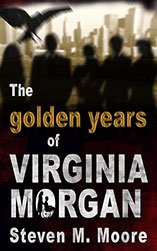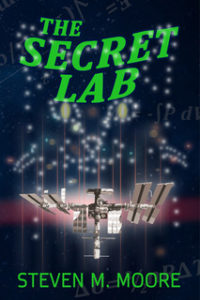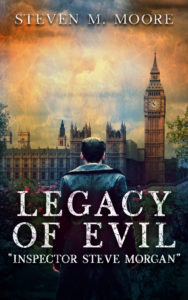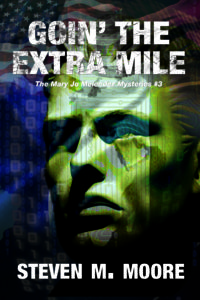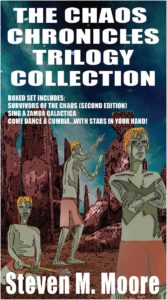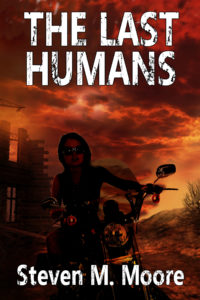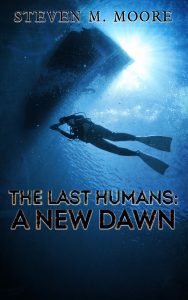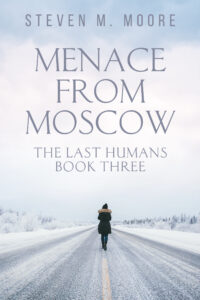Mortality in fiction…
Wednesday, May 7th, 2025My previous post about religion in fiction naturally is a segue into the topic of mortality in fiction. In typical thrillers, protagonists usually survive despite many odds against them, but they might be avenging the death of others near and dear to them. And while the main protagonists often live a charmed life because of luck or skills, secondary characters are often become victims. Most mysteries start with the victims, of course; there has to be a crime for the protagonist(s) to solve.
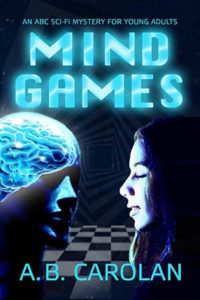 The novel Mind Games is a classic mystery/thriller in that sense, although it is set in the far future. A.B. Carolan starts with an heinous murder of a man’s adopted daughter, and she swears revenge. The ensuing action is more thriller than mystery, and many readers would just say that the story is just good sci-fi, which was my Irish colleague Carolan’s intention, of course [wink, wink]. I use this as an example to show that even young-adult literature can deal with mortality!
The novel Mind Games is a classic mystery/thriller in that sense, although it is set in the far future. A.B. Carolan starts with an heinous murder of a man’s adopted daughter, and she swears revenge. The ensuing action is more thriller than mystery, and many readers would just say that the story is just good sci-fi, which was my Irish colleague Carolan’s intention, of course [wink, wink]. I use this as an example to show that even young-adult literature can deal with mortality!
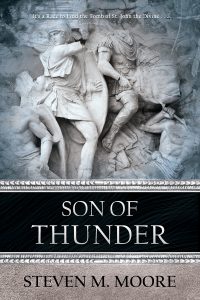 In general, victims can become a problem if readers become too attached to them (although in a mystery, that might be what the author wants because it justifies the revenge motive). An editor of Son of Thunder lamented when a Turkish detective who aided Esther Brookstone…well, read the book. Similarly, a reviewer was upset while reading Aristocrats and Assassins when a friend of Castilblanco’s wife…again, read the book. An attachment to certain characters often occurs, even villains.
In general, victims can become a problem if readers become too attached to them (although in a mystery, that might be what the author wants because it justifies the revenge motive). An editor of Son of Thunder lamented when a Turkish detective who aided Esther Brookstone…well, read the book. Similarly, a reviewer was upset while reading Aristocrats and Assassins when a friend of Castilblanco’s wife…again, read the book. An attachment to certain characters often occurs, even villains.
I even toyed with the idea of killing off main character Ashley Scott in The Golden Years of Virginia Morgan, just to be radically different. After all, she doesn’t appear in any more novels on that long fictional timeline extending beyond the “Detectives Chen and Castilblanco” series, although her novel can be considered a bridge book to the “Clones and Mutants” trilogy. (There are now a few other stories and series in between!) Yet one can argue that principal characters like Ashley Scott and even Esther Brookstone deserve to retire gracefully, living on in relative peace.
But fiction must seem real, and our mortality is part of our human reality. Good fiction must avoid the “lived happily ever” syndrome of childhood’s fairy tales. Shakespeare knew to include mortality in his dramas, most notably in Hamlet, which is a play that considers mortality in almost every scene. Mortality is also a big theme in Dickens’s Tale of Two Cities, where it’s closely tied to religion.
Fiction authors can add significant meaning to their tales by including mortality as a theme. One can argue that both the morality and religious themes are what separates profound fiction from fluff.
***
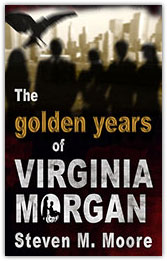 Comments are always welcome. (Please follow the rules found on the “Join the Conversation” web page.)
Comments are always welcome. (Please follow the rules found on the “Join the Conversation” web page.)
The Golden Years of Virginia Morgan. DHS agent Ashley Scott witnesses a murder in a riverside park. She and an investigative reporter become involved in the case…and a lot more. This mystery/thriller considers the answer to the following question: What will a future US government do to keep old agents who know a lot of secrets from revealing them when they slip into dementia and Alzheimer’s? You might not like the answer! Available wherever quality ebooks are sold (even on Amazon).
Around the world and to the stars! In libris libertas!
